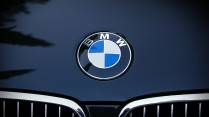GM Announces Cost-Efficient LFP Battery Enhancement in Next-Gen Bolt
By Dabbie Davis
Mar 05, 2024 08:01 PM EST

General Motors planned to introduce the next generation Chevy Bolt EV next year. This comes after ending the production of its well-liked electric vehicle through last part of 2023. GM CFO Paul Jacobson has emphasized the revolutionary cost-saving potential of this new model, which is expected to save the company billions of dollars. This is the first Ultium-based model in North America to use LFP batteries.
Billions of Savings
It is anticipated that this switch from GM's present Ultium battery cells' nickel-cobalt-manganese-aluminum (NCMA) chemistry will result in significant savings on capital and engineering costs. Therefore, positioning GM for financial efficiency and innovation in the electric vehicle market.
As per reports from Electrek, GM had made plans to discontinue the electric Chevy Bolt EV last year; however, CEO Mary Barra disclosed the development of a next-generation model. Barra said that the Bolt EV would remain an Ultium-based model in a July media call, highlighting the vehicle's ability to expedite production procedures.
The company's leader expressed confidence in the new Bolt EV's ability to enhance the driving, charging, and ownership experience. Notably, the introduction of LFP batteries stands as a major advancement, poised to significantly reduce costs as the first Ultium EV to incorporate this technology.
Barra also confirmed that the unveiling of the new electric model is slated for the upcoming year. She discussed the favorable accomplishments of the current year when speaking at the Automotive Press Association in Detroit (via Automotive News). She indicated that these developments guided the decision to revive the model in 2025.
Mary Barra, the CEO of GM, has shown hope despite the company's disappointment with the production of Ultium models in 2023, pointing out that "substantial improvements" have been made.
READ MORE: 2024 Mitsubishi Outlander PHEV Delivers Thrilling Driving: Elevating Performance
Jacobson has emphasized that the decision will lead to significant cost savings for GM. By aligning the Bolt with its Ultium-based models and introducing LFP batteries (marking the first Ultium EV in North America), GM's financial leader has highlighted the potential for the model to contribute to achieving a positive variable profit by the latter half of the year.
Jacobson referenced the long-established brand of the Bolt, highlighting its reputation for offering a highly regarded product that has earned substantial customer loyalty. He further emphasized that leveraging the efficiencies of the Ultium platform through LFP chemistry and technology will not only enhance the model's profitability but also significantly strengthen the business case for it.
LFP Batteries
According to insights from Autoblog, an analyst has projected that 250 electric vehicles will be powered by LFP cells by 2030, a detail that may not be widely publicized by car manufacturers. Additionally, an article in Ars Technica earlier this year highlighted that LFP batteries were approximately 20% less expensive per kilowatt-hour compared to nickel-manganese-cobalt cells. Furthermore, a report in PC Mag discussed the favorable attributes of the chemistry, such as cost-effectiveness, performance, longer lifespan, and reduced risk of overheating, which appeal to carmakers.
However, there is reluctance to openly discuss these batteries due to their association with lower-cost variants and their relatively slower charging performance compared to pricier chemistries.
While LFP cells appear to be a suitable option for a new Bolt, it's anticipated that certain potential customers may have reservations about the perceived downgrade, regardless of the cost.
RELATED ARTICLE: Report Reveals Chevrolet Trax Leads 2024, Crowned Best Car
Copyright @ MOTORTIMES, All rights reserved. Do not reproduce without permission.








